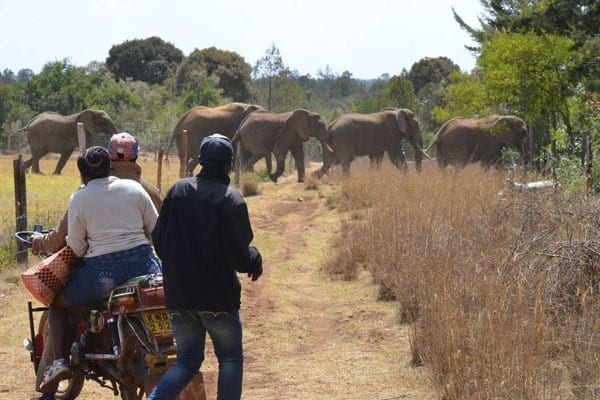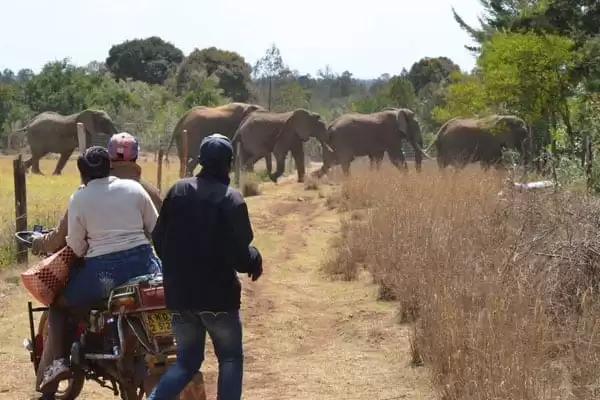

Last updated on September 11th, 2021 at 03:20 pm
Tanzania’s two-year anti-poaching programme has registered mixed results with a spike in wildlife populations in national parks and game reserves, and an attendant increase in human-wildlife conflict.
Authorities are now grappling with how to keep wild animals from destroying crops and invading human settlements adjacent to wildlife habitats, especially near the Serengeti National Park, and in Manyara and Katavi regions in northern Tanzania.
The deputy Minister for Natural Resources and Tourism, Constantine Kanyasu told The EastAfrican that the government is looking to establish a special unit to address the problem.
They are also seeking interested hunters to cull hippos and crocodiles to reduce their numbers in areas where they are a threat to people.
“It is common to encounter a herd of elephants roaming in human habits in parts of the country, and in some hippos, lions, crocodiles and leopards are a common sight,” said Mr Kanyasu.
Cases of elephant and crocodile attacks on people have been on the increase and communities living near Serengeti National Park in northern Tanzania especially cite frequent attacks by elephants. In Manyara and Katavi, the menace is from hippo and crocodile ambushes.
The Oklahoma City Thunder secured their tenth consecutive victory by beating the Chicago Bulls 145-117. This victory raised their season…
Rob Walter Resigns his Position as coach for the Proteas men's team for white-ball games because personal problems needed attention.…
Starting April 2, South African drivers will get lower costs when filling their tanks as fuel prices decrease for all…
The U.S.-based driver training company Zutobi analyzed road safety worldwide and found South Africa stays last in driving danger since…
The Basketball Africa League (BAL) returns for its 2025 season with exciting changes and developments. Since 2019 the NBA-linked basketball…
The Somali president supports their military forces to eliminate the threats from Al-Shabaab, ISIS, and Al-Qaeda. The Somali National Army…
This website uses cookies.